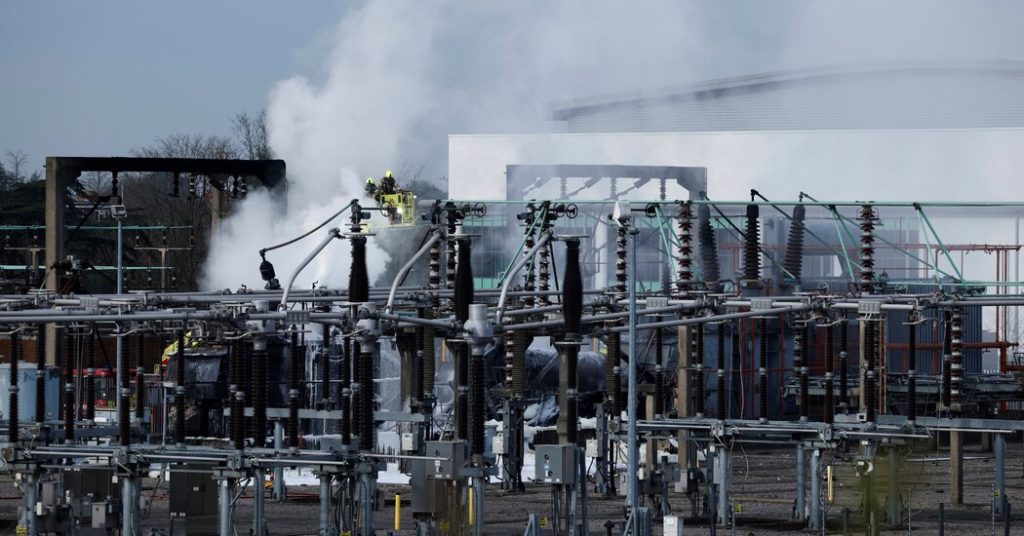The head of an airline advocacy group has issued a warning to UK parliamentary members about the potential threat posed by substation failures at Heathrow Airport that day before aserious fire occurred, which led to the shutdown of the airport last month. In his address to the British Export, Markets, and500 Transport Committee, Professor Nigel Wicking highlighted the urgent need for airlines to prioritize safety and resiliency in the face of such critical infrastructure vulnerabilities. Wicking emphasized that the group would warn the MPs of concerns regarding the stability of its substations, which are the electrical grid components responsible for power distribution to Heathrow and other European cities.
The fire that consumed the third electrical substation at Heathrow on March 21 had thrown a wrench into the daily operations of the airport, resulting in a complete power outage for over two weeks. This incident directly stalled holiday plans, disrupted international flights, and finally caused widespread chaos worldwide. Wicking stated that although there was limited occasional testimony about the risks, the widespread disruption to flights, including immediate cancellations, suggested that some flights could have resumé reasonably early in the day if the airport had utilized all of its five terminals. He proposed that airlines like British Airways,”]
}}} Cathedral,.”
The power failure at the Heathrow substation has raised questions about Britain’s interconnected mechanical and electrical networks. Experts estimate that the potential for cascading blackouts could cost up to £100 million to restore the airport’s power supply, a bad scenario that could have equally disrupted air travel. The group is also suggesting that building a more resilient energy infrastructure would be a critical first step, possibly over many years to ensure that such an event is not repeated. Wicking has warned that even minor incidents, such as the theft of power supply equipment, could pose serious security risks and cause serious disruptions.
In the aftermath of the fire, Wicksthing described incidents of theft during the power supply operations at the substation, stating that one instance involved the “_FAILURE of the lights on the runway for an extended period.” Wicksthing noted that this event “made me concerned” and observed how vital Heathrow is to air travel’s global reach, including in Britain and the broader European region as well as around the world. He emphasized the importance of ensuring that Heathrow and its infrastructure operates reliably, highlighting the need for airlines to take proactive measures to provide more reliable connections.
While the immediate causes of the incident are somewhat understated, the lessons learned from such catastrophic events could serve as important guidelines for stakeholders in the aviation industry. Wicksthing observes that the airport’s failure has not deliberately targeted individuals, but rather the very systems that make up its reliability. He also pointed to the fact that the incident occurred at a time when strategic importance in the air transport system was increasing.
Conclusion: The flight Mongraim, the Heathrow pilot lifted off on the morning of the fire, offered hope that the community can rise from the ashes of such apth telefonies, but Wicksting sees no guarantee. He passionate about preserving air connectivity essential to global travel, yet grappling with the implications of this fates the challenge he lays for all who sit on the waiting bench, ready for change.”










